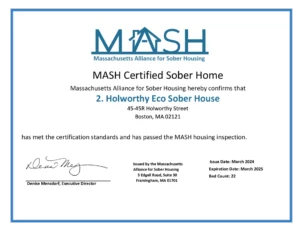
Let people know when you gave your life over to sobriety, and why. In many ways, you don’t have to stress too much about this section when trying to sharing your story in recovery devise the best structure for telling your story. Your sobriety date is the midpoint of your story, the point at which addiction became a recovery.
Engaging Clients Through Stories

It creates connections between those in recovery communities, and fosters empathy, understanding, and support. Through this shared experience, individuals find strength in giving and receiving support on their journey. Ultimately, recovery stories have an essential role in promoting healing, connecting people, and helping those on their own journey. They give courage, support, and motivation to those in recovery, or those who are thinking of embarking on this journey. By sharing these stories, people can recognize their own recovery journey’s value, and also give direction and hope to those still fighting.
- She launched SameYou with her mother Jenny in 2019 to support other survivors through their mental health recovery process.
- She served in Operations and HR for a finance company for ten years, before returning to healthcare and eventually arriving at USR.
Do: Acknowledge Your Support System
This involves helping clients tell their stories, access and integrate memories and feelings, and make meaning of their experiences. As clients gain control over their extremes, https://ecosoberhouse.com/ they reconstruct their lives and choose new paths. Within thirty minutes of being introduced, you know their whole life story and you wonder why they’re sharing so much.
Researching Arizona treatment centers? Learn more about programs offered at Canyon Vista Recovery Center.
Butch worked for one of the state’s first intensive outpatient programs in Jackson, TN and the Jackson Area Council on Alcoholism. During this time, he developed two pilot addiction programs in the Greater West Tennessee area. Butch also maintained a private practice, specializing in family of origin work and addiction populations. Nick’s work highlights Cumberland Heights’ commitment to outcome-oriented care, using proven techniques to put those struggling with substance use disorder on a path to success. Since 2016 Jay has served on the board of directors of the National Association of Addiction Treatment Providers (NAATP). As past chair of NAATP’s Ethics Committee, Jay was instrumental in important changes made to the organization’s code of ethics.
- However, it’s important to do a little prep before you share for the first time.
- It can help your own healing, and it can break the stigma of addiction and support those struggling.
- It isn’t easy to formulate the thoughts and memories, and then deliver your story.
- Support groups and sponsorship can provide guidance and understanding during this process.
- For instance, sharing the story of Persephone and Demeter with a female rape survivor can help her relate to the universal themes of abduction, rape, and rebirth.
The Role of Addiction Recovery Stories in Inspiring Change and Promoting Healing

By sharing personal experiences, individuals can find healing and support, and also inspire others to seek help and believe in the possibility of recovery. Rehab centers, treatment programs, and beyond should use storytelling to promote healing and remove barriers to recovery. Storytelling has been recognized as a great way to promote therapeutic benefits in addiction recovery. By sharing personal experiences, individuals can find comfort in understanding they are not alone in their battles. The emotional connection provided by storytelling can create an environment of empathy and support – both essential for healing. Using storytelling as a marketing tool allows rehab centers to create connections with their target audience.
What Are You Supposed to Say When Making Amends in AA?
- It helps them on their own path to recovery as well as reassures and appreciates their own journey.
- When I perform my theatrical keynotes about my lived experience with bipolar disorder, anxiety, and psychosis, I see the immediate positive effect on the audience.
This may not be the most glamorous detail, but it is an important one. It shows the raw reality of addiction and how it can affect every aspect of your life. Some observers might not relate to the ease with which you “quit your job” to pursue treatment, so they could tune out and miss key points in your story. This is one example of how embellishing your story can actually do more harm than good. Recovery is an emotional journey, and it can be tempting to embellish your story for dramatic effect.
When you tell an honest account of your experience, you’re sharing your truth and being vulnerable. Your genuine experiences may also resonate with others in the room, who may connect with you afterward to discuss similar situations they’ve been through. NAMI has developed multiple presentations to help you in sharing your story in your community.
The Therapeutic Journey
